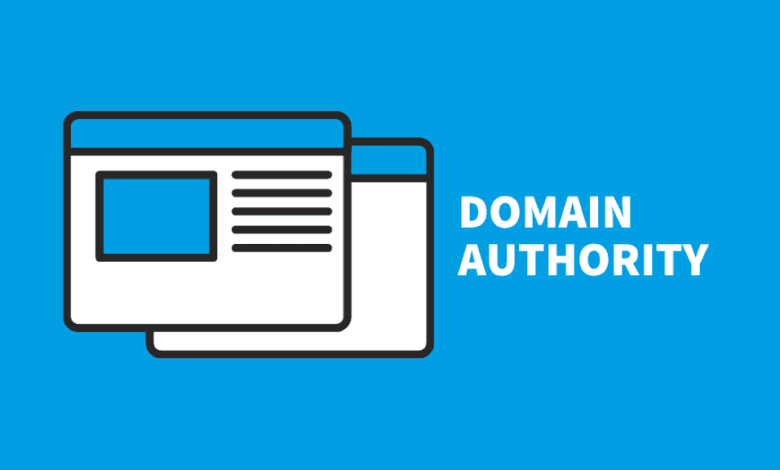
Introduction:
Technically, Google’s ranking algorithm is a closely guarded secret based on the domain authority of your website. Since this algorithm is proprietary, no one outside the industry is privy to its inner workings, and it undergoes frequent and dramatic revisions.
Every website owner, from those running large corporate sites to those running small, specialized ones, needs to know how they stack up against the competition. How, though? Moz, an SEO plugin, uses its proprietary algorithm to hazard an informed bet.
Domain authority is a useful indicator of your relative standing since it is an informed assumption. Read on to discover methods for elevating your website’s domain authority.
Before we go any further, I should point out that a website’s DA does not necessarily lead to higher ranks. It’s possible to have a low-quality, high-traffic site with high domain authority and vice versa. Therefore, it should not serve as the sole KPI.
A Brief Explanation of Domain Authority:
What’s Moz’s deal, to begin with? Who are these people, and what gives them the right to declare a thing to have domain authority?
In 2004, we launched as a corporation. The practice of optimizing websites for search engines has just begun. Moz started as a blog but has now developed into its ecosystem.
They’ve become the “grandpappies” of search engine optimization. And after over two decades of research and development, they’ve gotten very close to figuring out what makes Google run. They found that focusing on high-quality link creation was essential to increasing domain authority (DA).
Why Domain Authority Is Important?
- Domain authority is one of the most important factors of SEO, it shows the trustworthiness and credibility of your website. However, there is no magic involved. A website owner’s broad impression of where they stand with search engines is based on two decades of testing and a little guesswork.
- Domain authority is, at its essence, a quantitative measure. It’s a huge concern for marketers, but it shouldn’t be the exclusive focus of your website or search engine optimization efforts. It’s not supposed to do that.
- The primary goal is to facilitate comparisons. Being pursued by a bear in the woods is a lot like being in the corporate world. Not everyone needs to be the fastest runner in the world. You only need to outrun your competitor.
- The domain authority score of 25 may cause some concern for a Nashville-based retailer. That score on the domain authority scale might not impress you. That’s a fairly little sum, after all.
- However, if all of your rivals’ web pages have DA scores below 20, you will likely outrank them if you follow all of the other best practices for SEO on your site.
- A well-designed, expert website can only get you so far. There is a limit to what can be achieved with SEO. Ultimately, you must provide a higher quality service than your rivals. When advertising your goods or service, everything else is just icing on the cake.
Why Should You Care About Domain Authority?
It’s no secret that business owners are obsessed with everything about their company. Entrepreneurial leaders, small business owners, and online marketers constantly attempt to outdo one another.
To just succeed is not enough; they must triumph. As a result, they feel the need to always be first. How often do you encounter business owners who claim to be content with only enough performance? Possibly, they make up a tiny fraction of the business community.
Domain authority and page authority are metrics that can help business owners gauge their level of success relative to the competitors. Marketers, such as search engine optimizers (SEOs), are available to assist them in completing the remaining steps.
Domain Authority Vs Page Authority
Like domain authority, page authority measures how credible a website is. Unlike domain authority, which predicts how well an entire domain will do in search engines, page authority rates individual web pages.
Your blog entries and other pages’ potential for ranking can be gauged in part by their page authority (again, assuming you have done on-page SEO correctly). Since you and your rivals are probably both pursuing many of the same keywords, monitoring this indicator might be useful.
But don’t dwell on it. Achieve not worry about improving your website’s domain authority and traffic; several strategies exist.
Simple Tips & Tricks To Increase Domain Authority
1. Improvise More Valuable Content
Blog postings are the first thing that comes to most people’s minds when considering the content. Take into consideration the items sold on your website. The photography might need some work. Where do the descriptions stand?
How easy is it to read your company’s information online? Do they address every concern a prospective buyer could have?
Those that employ such tools usually have a purpose in mind. This is what we mean when we talk about user intent. Search intent is another name for this concept. Your writing needs to help others by answering their questions or solving their problems.
Your local SEO efforts and accurate product descriptions will bring customers from Nashville looking for Yokohama tires.
But supposing they are interested in reading anything that compares several tire options? What if they specifically want feedback on a certain model or tread design?
If your blog article ranks highly enough for the relevant term, you might easily get these visitors.
2. Create High Quality Backlinks From High Domain Authority Sites
Building links to your site is one of the most effective strategies to boost your domain’s authority and, by extension, your search engine rankings. If you want to boost your domain authority, it’s also a good idea to enhance the page authority of your blog entries by attracting inbound links to them.
You may increase the number of inbound links to your site in several ways. If you implement any of these suggestions, the resulting backlinks should be high quality. If you want to be sure the links leading back to your site are beneficial, verify their domain authority.
When you engage a link-building business to perform the work for you, it’s the least hands-on method of link development. In other words, if you hire a good link builder, you can expect to receive high-quality and beneficial links. If you don’t have the time or inclination to go headlong into link marketing, partnering with an agency may be your best bet. Visit www.jetranks.com to generate massive backlinks from high authority websites, which helps to improve your domain and page authority.
3. Social Media:
One of the two main off-page SEO strategies is building links. The second aspect of this is how you use social media. The smart application of social media may aid your efforts and attract a large number of visitors.
It’s the belief of some that they must participate in every social media platform. That is completely not the case. You need to go where your target audience already is. Whoever buys your wares or services probably has a Facebook account. If so, you really ought to show up. Pay close attention to the top two or three social media platforms in terms of ROI. Gaining attention for your company is easier the more individuals who follow you there are. This can result in organic linking and participation, both of which are beneficial.
4. Optimize On page Content
To achieve your ultimate aim of increasing leads and conversions, consider the following advice for optimizing your on-page SEO.
1. Maintain Readable Blog Format
There is no need for a massive block of text to be shown. Even if they start reading it, most people will give up. Make it easy to quickly scan your material. The ideal length for a paragraph is between four and six lines. Make good use of headers, ideally in the title case.
Pictures mustn’t be too huge. WordPress users may benefit from an image optimizer plugin like Semrush to reduce the impact of these pictures on page load time, which significantly impacts search engine rankings and domain authority.
2. Add Internal & External Links
One of the most undervalued SEO tactics for increasing ranks and making the most of current domain authority is to use internal and external links within your content effectively.
Adding internal links to your blog posts and web pages is a great way to direct readers to further material on your site. It’s your fault if a visitor reads a helpful article on your site but clicks away without buying anything and never returns.
3. Use Relevant Keywords to Increase Domain Authority
Google’s ability to understand the purpose of your content depends on your use of appropriate keywords. They use this term as part of a search query. If they determine that your material is the most relevant and useful to their users for a certain keyword, you will rise to the top of the results for that term.
Include your target term in the title, at least one header, and a couple of times throughout the body of the text. Don’t pack your blog posts and product descriptions with too many keywords. Instead, you should work to make them sound and feel as organic and seamless as possible.
4. Mobile Friendly Website
As a result, before launching a website, most developers today optimize it for mobile use. With WordPress, you can preview your site in various viewport sizes before going live.
5. Increase Page Speed
Having a website that loads too quickly is better than having one that doesn’t load. It’s all too typical to have one that’s too sluggish, and that’s not ideal for obvious reasons.
Your website will load quicker if you edit the content. Do your visitors get hit with huge pop-ups as soon as they appear on your homepage? Are the pictures too big? Have we accumulated far too many things?
Installing a cache plugin and an image optimizer is essential to the initial steps of using WordPress. Just by having these two resources, you can quickly solve many issues.




